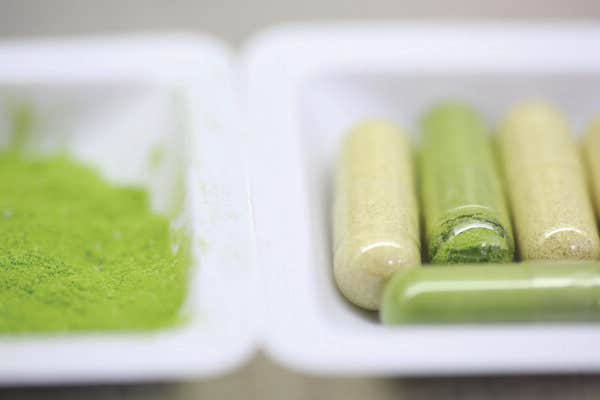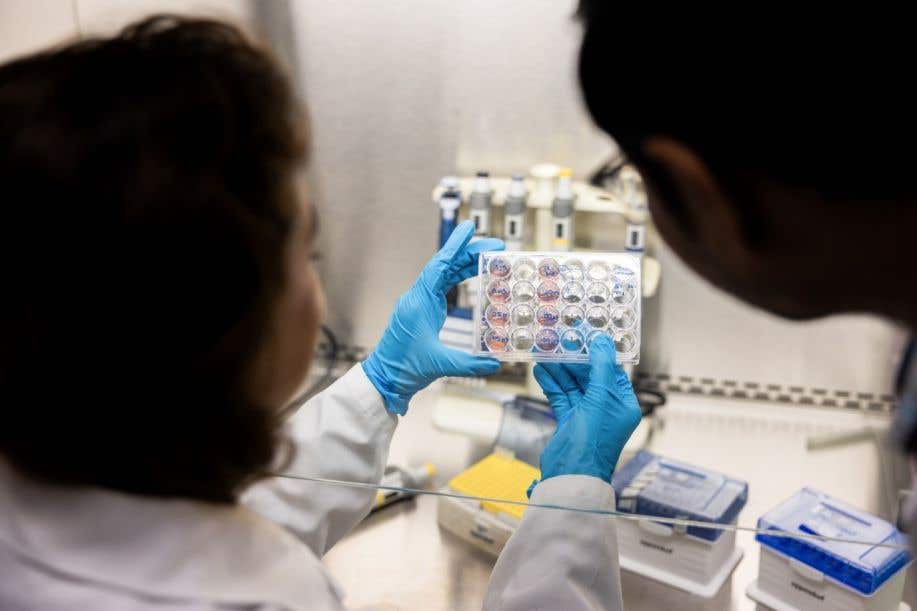Plant-based oral insulin could revolutionize treatment for diabetes patients worldwide
A new, affordable method of insulin delivery lowers the risk of hypoglycemia when compared to current diabetes treatments

[June 15, 2023: Staff Writer, The Brighter Side of News]
A new, affordable method of insulin delivery developed by Henry Daniell of the School of Dental Medicine lowers the risk of hypoglycemia when compared to current diabetes treatments. (CREDIT: Creative Commons)
In an era of increasing rates of diabetes worldwide, an innovative breakthrough from the laboratory of Professor Henry Daniell of the University of Pennsylvania's School of Dental Medicine could be the panacea that patients and healthcare professionals have been searching for.
With an estimated 537 million adults living with diabetes, the demand for affordable, easily accessible, and risk-free insulin has never been greater. A recent study led by Daniell, published in the journal Biomaterials, proposes a plant-based oral insulin delivery system that may circumvent many of the risks associated with traditional insulin administration.
For the past half-century, the production and delivery of insulin, a lifesaving medication for diabetics, have presented numerous challenges and risks. Traditional injection methods via insulin pens can often lead to the hormone entering the bloodstream so rapidly that hypoglycemia - an acute condition where blood sugar levels fall below a healthy range - becomes a legitimate concern.
Alternately, while automated insulin pumps can deliver precise quantities of insulin and mitigate this risk, they are prohibitively expensive and consequently available to only a select few diabetes patients globally.
Related Stories:
In a pioneering leap, the Daniell lab has designed an oral, plant-based proinsulin that addresses the drawbacks of existing insulin delivery methods. "The risk of hypoglycemia is one of the biggest disadvantages of the current delivery system and can even result in a coma. Our insulin, given orally, has all three proteins and is delivered right to the liver. It works just like natural insulin, which minimizes the risk of hypoglycemia,” Daniell remarks, underscoring the profound potential of this innovative approach.
The groundbreaking research from Daniell's team is hinged on an intricate understanding of natural insulin and its structural components. Whereas clinically-used insulin lacks one of the three peptides that naturally occur in insulin, the lab-created, plant-based insulin houses all three.
This feat of bioengineering is coupled with the ingenious employment of the resilience of plant cell walls, which protect the insulin from stomach acids and enzymes until it's broken down by gut microbes. Subsequently, the insulin is released and delivered to the liver via the gut-liver axis.
Henry Daniell is the vice chair and W.D. Miller Professor in the Department of Basic & Translational Sciences in Penn’s School of Dental Medicine. (CREDIT: Kevin Monko)
This revolutionary insulin was put to the test on diabetic mice, and the results were impressive. Within just 15 minutes of ingestion, the plant-based insulin regulated blood sugar levels in a manner highly comparable to naturally secreted insulin. By contrast, mice treated with traditional insulin injections experienced rapidly falling blood glucose levels, triggering transient hypoglycemia.
Daniell, a veteran in exploring the potential of plant-grown proteins, has an impressive track record in this niche area of research. In a pivotal 2015 study, he and his team demonstrated the commercial viability of a low-cost drug for hemophilia patients, derived from lettuce plants.
Alongside this, Daniell has also engineered plant-based medicines to treat pulmonary arterial hypertension, Alzheimer's disease, polio, and dental plaque. He even innovated a plant-based gum that reduces the viral load of COVID-19 in saliva, testifying to the vast potential of plant proteins in medicine.
Graphical Abstract: Current and future insulin drug delivery methods and percentage global usage: (A) Subcutaneous insulin injections: Syringes and vials - 9.6%. (B) Transdermal Insulin Pen - 85.6%. (C) Implantable insulin pump -
The process to produce plant-based insulin is unlike traditional methods. Daniell and his team identified human insulin genes and used a "gene gun" to embed these genes into the tough plant cell walls. Integrated into the lettuce plant's genome, the genes were passed down to the seeds. The lettuce grown from these seeds is then freeze-dried, ground, and prepared for oral delivery, strictly following FDA regulatory guidelines.
Daniell's production method is markedly different from traditional insulin manufacturing, which requires cultivating the hormone in bacterial or yeast cells, an expensive and laborious process that necessitates purification and a cold environment for transportation and storage. In contrast, Daniell's method removes the need for expensive, complex lab equipment and yields a product that is shelf-stable at room temperature.
Commenting on this breakthrough, Daniell asserts, “We’ve seen news stories about vaccine doses being destroyed because some countries don't have the resources for cold storage throughout the process. It is an enormous cost. This kind of post-production cost is eliminated using our methods because we have shown repeatedly that the product is shelf-stable.”
This research is only the beginning. Daniell's future plans involve testing this plant-based insulin in canine and human subjects. For dogs, an animal known for a high prevalence of diabetes, this innovation could drastically simplify treatment. "A lot of dogs have diabetes, and the owners have to be home to give insulin three times a day," Daniell explains, outlining a common concern for pet owners. "We’ve done canine studies in the past in dogs with hemophilia or heart disease, and we know how to mix the plant powder in their food and add some bacon flavor. They love it.”
This plant-based approach to medicine could drastically alter treatment not just for diabetes, but also for numerous other diseases. Daniell concludes, “With this delivery system, we change the whole paradigm, not only for insulin. I grew up in a developing country and saw people die because they couldn’t afford drugs or vaccines. For me, affordability and global access to healthcare are the foundations for my work. And in this case, we are making insulin more affordable while significantly improving it. Patients can get a superior drug at a lower cost.”
As the world anticipates the results of Daniell's ongoing research, his commitment to creating affordable, effective treatment stands to revolutionize global healthcare and the lives of countless patients.
Note: Materials provided by The Brighter Side of News. Content may be edited for style and length.
Like these kind of feel good stories? Get the Brighter Side of News' newsletter.



